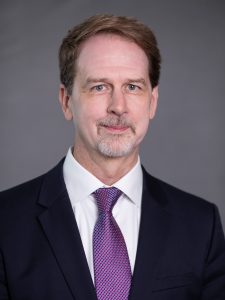The second webinar of the AI Connect series was held on Thursday, April 28th with the goal of contextualizing ethical AI implementation, shining light on corresponding policy issues faced by countries around the world and diving deeper into global AI regulatory frameworks such as the OECD’s AI Principles.
The program began with an introduction to the subject from the Atlantic Council’s own Dr. Peter Engelke, who emphasized that AI policy is often not proactive, but rather reactive, as technology policy historically has been. In order to therefore maximize the effectiveness and fairness of AI policy, it must be based on a foundation of core values and principles identified by a broad multi-stakeholder network. This endeavor can only be successful in open, free, and democratic societies. Following his introduction, Dr. Engelke moderated a panel of AI experts, featuring OECD Head of Digital Economy Policy Division Audrey Plonk; BSA/Software Alliance Senior Director of Policy Christian Troncoso, and Carnegie Mellon University Mechanical Engineering Professor Dr. Conrad Tucker. Panelists discussed different OECD principles, how they were developed, and what other initiatives exist to guide responsible AI usage and development. The program concluded with a lively Q&A discussion, during which panelists and participants alike explored the ways in which international frameworks are impacted by factors including algorithmic biases, spoken language barriers, and government transparency and accountability.


